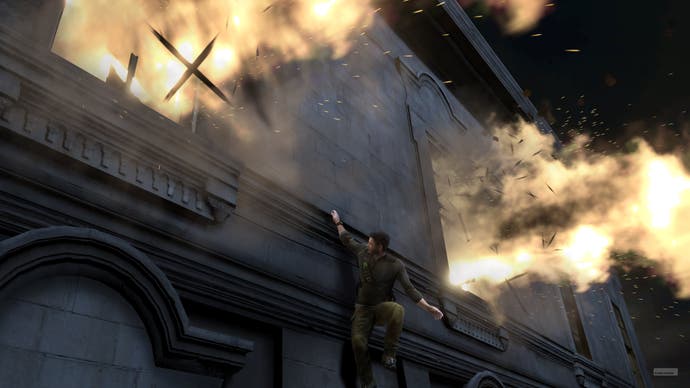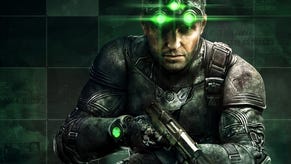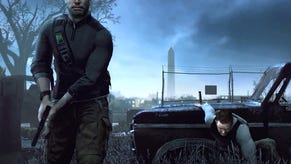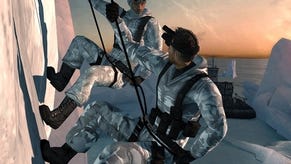Splinter Cell: Conviction
Courage?
The irony in calling the reinvention of a long-established series Conviction, only to flip-flop on what exactly that reinvention should look like, is writ large across Splinter Cell's recent history. We're now three years on from Ubisoft's original release date for Sam Fisher's fifth outing, a development hell seemingly spent groping in the dark for exactly what a stealth game should look and play like, post-Kojima.
The answer, it appears, is nothing much like a stealth game at all. Fisher has found alacrity in his middle age, his sneaking now less about cowering from torch beams than dashing, Dark Knight-like, from silent takedown to takedown. There are still echoes of the series' tradition of planning and executing skulk attacks, but new-found pace and accessibility makes this more of an action game than ever before.
Where once Splinter Cell was the primary preserve of the patiently cruel - those players happy to memorise enemy patrol patterns, lay elaborate traps and find thrill in the crumple of a single adversary - Conviction invites Jack Bauer into its lead role, then dresses him up like a ninja.
Now on the run, Fisher has no access to the raft of gadgetry once provided by former employer Third Echelon, the lack of night vision goggles placing new emphasis on movement and blunt power (and eliminating the dull green wash that characterised the visuals of the earlier games). No longer is the game about laying traps in the dark and hiding in wait. Rather, darkness acts as a superhero cape, empowering as it gives you, the unseen, deadly power over them, the seen.
Is it really possible to reconcile creeping stealth with fireworks and fury? Even within the last two months, release dates publicised in magazine advertisements have passed Splinter Cell: Conviction by, reconfirming the impression that this is a game more often defined by uncertainty than the confidence of its assured name. Why mention the difficult gestation here? Because, despite the classy visuals and the neat set-piece mechanics, the conflict around the game occasionally spills inside the game; and while the developer has done its best to paper over the cracks, your eyes soon adjust to perceive the fault lines, particularly in the single-player storyline.

Not at first, mind you. The bold, stylised visuals and careful pacing of the excellent first hour or so of play make sure of that. As you creep from cover to cover through a continental night-time market, shooting out light bulbs with a silenced pistol to create pockets of dark safety, new ideas come thick and fast. When safe from enemy detection the world drains of colour, only refilling with warm hues and tones when you step out into the light. The technique allows Ubisoft to keep the screen free from clutter, while communicating everything the player needs to know at any given moment.
Fisher's thoughts and memories are projected as grainy black-and-white video onto whichever nearby wall or ceiling can act as a screen. Likewise, the daring choice to project game instructions, directives and mission overviews directly into the game's environments as stark, white light lettering is a triumph. The technique of placing fourth-wall-breaking text into the world is borrowed from title sequences to films such as David Fincher's Panic Room and Saul Bass' work on North by Northwest, again eliminating the need for intrusive menu pop-ups or HUD text elements.
The technique's at its best when it's used at set points, telling you to infiltrate a mansion by placing 30-foot high words to that effect along the shadowy side of the building itself, or as a stress-heightening countdown timer repeated on every wall around. However, a click of the select button will project your current objective onto whatever surface you currently have the camera pointing at, so you're never at a loss as to what you should be doing.







